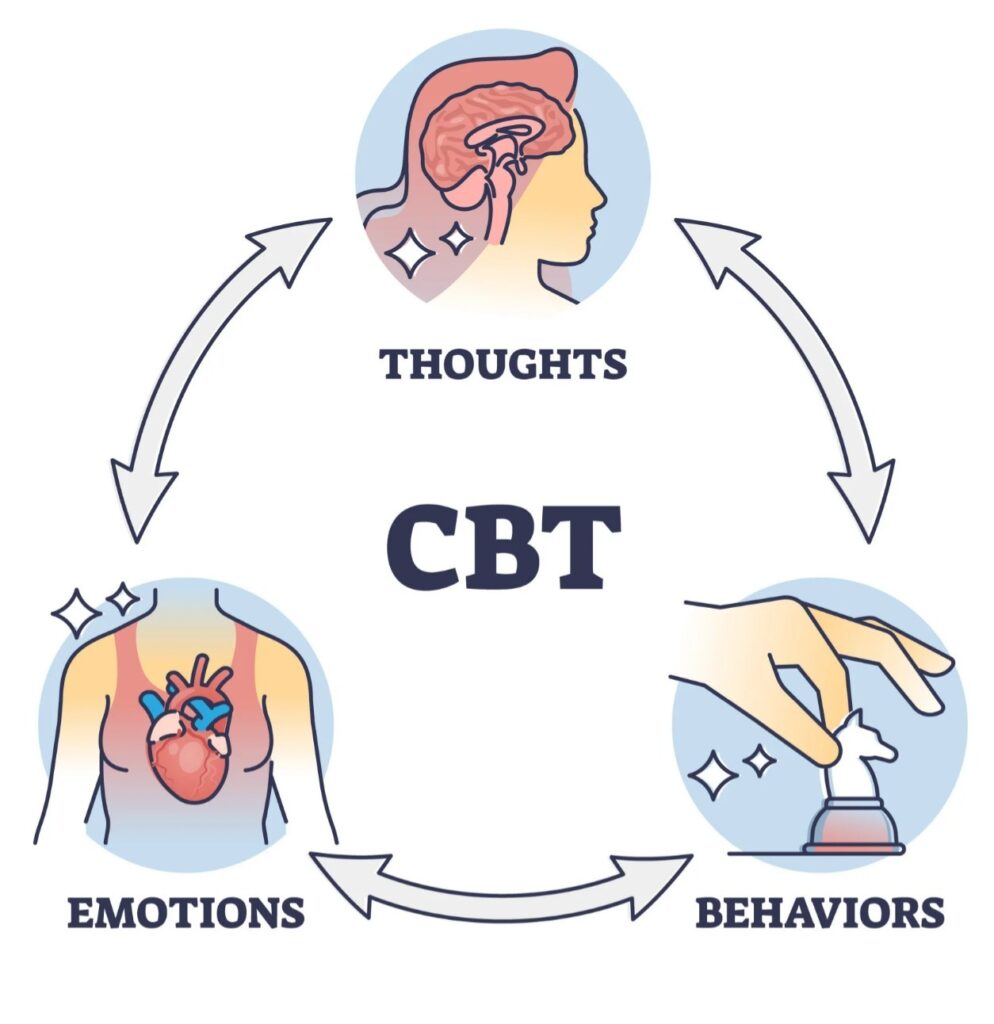back
The Rethink Program: Mastering the Cognitive Model with CBT
Nov 15, 2023
 Updated: May 9, 2024
Updated: May 9, 2024
“One of the cardinal features that cognitive therapy is that it stubbornly refuses to buy into your sense of worthlessness.” – David Burns, MD
Psychotherapy has a long and rich history of developing new and innovative treatment approaches to address the ailments that many individuals experience with mental health. Of those developments, Cognitive Behavior Therapy (CBT) has become a leading therapeutic approach to treating and relieving mental health disorders. Originally developed in the 1950s by Dr. Aaron Beck, MD, CBT informs the belief in the intervention to change one’s mental wellbeing is through changing how we think, which changes how we feel, and how we behave. Learn more about it with Mental Health Systems today.
The Cognitive Model
Cognitive Behavior Therapy is informed by what is called the Cognitive Model. The cognitive model informs the belief that we, as human beings, experience events or situations and our perceptions of those events or situations influence our emotions, which influence our responses or behaviors to the events/situations that we experience. When an individual begins experiencing progressively more negative or unrealistic changes in their thinking, it can lead to significant impairments or lack of functioning in their lives, and potentially the development of a mental health disorder. This type of thinking is called distorted thinking which influences an individual’s emotions and behaviors in response to their distorted thinking.
Let’s see the example below:
Event/Situation
Reading about the Rethink Program
Thought
“This is too hard! I can’t change how I think. I’ll never be able to feel better.”
Reaction:
Emotion: Discouraged, Overwhelmed, Frustrated
Physical: Tension in shoulder and neck, stomach is upset
Behavioral: Avoids reaching out to inquire about the Rethink Program and stays in bed and isolate.
The Rethink Program
The Rethink Program at MHS has been developed to respond to the specific needs of individuals through recognizing distorted thinking patterns and engaging in both cognitive and behavior strategies to directly challenge or dispute the distorted thoughts and replace them with more realistic thoughts. Our program explores the cognitive model, identifying automatic thoughts, cognitive distortions, core beliefs and specialty topics such as depression, anxiety, sleep, communication, and addictive behaviors to facilitate individuals into developing adaptive thoughts and behaviors to the situations that they experience on daily basis. The Rethink Program is also conducted in a group therapy setting which assists in the facilitation of CBT concepts and coping strategies by offering feedback and suggestions in practicing the different coping strategies.
What Rethink does
· Teaches about cognitive distortions and coping strategies to directly challenge distorted thoughts and replace it with more realistic thinking. Teaches specialty topics regarding CBT and anxiety, depression, anger, relationships, communication, sleep, addictive behaviors, core beliefs, and relapse prevention.
· Consults with each client regarding their stressors and distorted thinking through identifying the events, thoughts, feelings, actions, and results as well as offering and practicing challenging statements and alternative behaviors to change their distorted thinking.
· Responds to the day to day needs of individuals when significant cognitive distortions are sticking through CBT interventions such as the ETFAR chain, distorted thought records, and behavioral experiments.
If you believe that you or someone you know is experiencing distorted thoughts causing significant struggles in life, the Rethink Program will be help facilitate the change needed to live a more adaptive and resilient life. Call (952) 835-2002 to make an intake appointment today.

 Updated: May 9, 2024
Updated: May 9, 2024